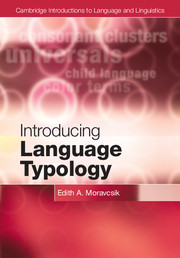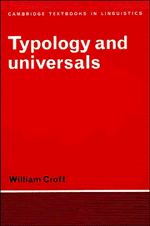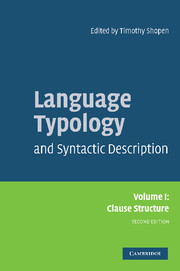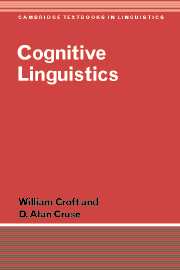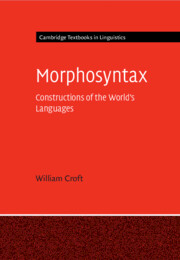Typology and Universals
Comparison of the grammars of human languages reveals systematic patterns of variation. Typology and universals research uncovers those patterns to formulate universal constraints on language and seek their exploration. In this essential textbook, William Croft presents a comprehensive introduction to the method and theory used in studying typology and universals. The theoretical issues discussed range from the most fundamental to the most abstract. The book provides students and researchers with extensive examples of language universals in phonology, morphology, syntax and semantics. This second edition has been thoroughly rewritten and updated to reflect advances in typology and universals in the past decade, including: new methodologies such as the semantic map model and questions of syntactic argumentation; discussion of current debates over deeper explanations for specific classes of universals; and comparison of the typological and generative approaches to language.
- Presents a methodological orientation to the study of typology and universals
- Includes phonological, morphological, syntactic and semantic typology
- Expands the discussion of explanations for language universals and theoretical debates between typology and generative grammar
Product details
No date availableAdobe eBook Reader
9781316038048
0 pages
0kg
1 map 16 tables
Table of Contents
- 1. Introduction
- 2. Typological classification
- 3. Implicational universals and competing motivations
- 4. Grammatical categories: typological markedness
- 5. Grammatical hierarchies and the semantic map model
- 6. Prototypes and the interaction of typological patterns
- 7. Syntactic argumentation and syntactic structure in typology
- 8. Diachronic typology
- 9. Typology as an approach to language.


